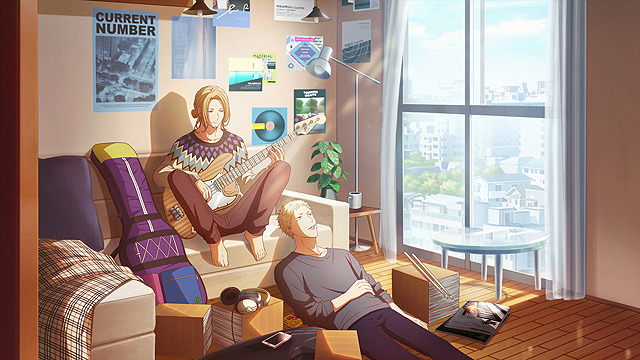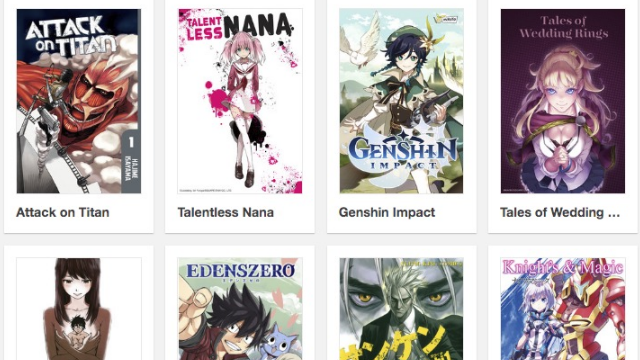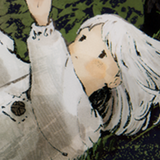#Anime Composers Yasuharu Takanashi, Yuki Hayashi & Makoto Miyazaki On Creating Music and Dealing With “Writer’s Block”

If you’ve been an active anime watcher for the past decade-and-a-half, chances are you’ve come across the music of Yasuharu Takanashi, Yuki Hayashi, and Makoto Miyazaki. Between the three of them, they composed music for many easily recognizable shows that include Naruto Shippuden, My Hero Academia, One-Punch Man, Spy x Family Season 1, Zom 100: Bucket List of the Dead, Fairy Tail: 100 Years Quest, Zombie Land Saga, Haikyu!!, Heartcatch Pretty Cure!, Hugtto! Precure, and many more series.
Thanks to those years of contributions, Takanashi, Hayashi, and Miyazaki were invited to be the special guests for Symphonic Anime’s recent North American tour, which took the live orchestral concert to Montreal, Toronto, and Boston in September. The concert, conducted by Thanapol Setabrahmana and featuring vocals from Nan Sathida, performed tracks from anime like Demon Slayer, Naruto, One Punch Man, and My Hero Academia.
Anime Trending was given the chance to ask these longtime composers about their work via email. We looked at why they became interested in music composition, how Takanashi and Hayashi felt when they were asked to compose for the long-running Precure magical girl franchise, and what types of sounds the three would like to tackle in the future.
This interview has been edited for clarity.
Where did you get your interest in composing from?
Yasuharu Takanashi: When I was in junior high school, I really admired a certain musician. That’s why I decided to become a band member, [and] started writing songs for the band as a songwriter.
Yuki Hayashi: It all started when I discovered men’s rhythmic gymnastics, a sport that is only practiced in Japan. It began when I decided to try my hand at composing accompaniment music for competitions as a hobby.
Makoto Miyazaki: I admired the singer I saw on TV as a child and wanted to make music like the songs he sang. I wanted to compose music rather than sing or perform. I don’t know why, but I naturally became interested in composing music.
After that, I started playing the guitar and began composing in earnest. Looking back, I have been composing every day since I was in junior high school.
Hayashi-san and Takanashi-san, the two of you have worked on long-running series, such as My Hero Academia (Hayashi), Fairy Tail (Takanashi), and Naruto/Boruto (Takanashi). How do you keep yourself fresh and inspired in such a situation, where you’re writing new music for new situations, for a show that you’ve been with for a while?
Yasuharu Takanashi: I must have a love for the anime and the manga. It’s important to always think about what would make the fans of the work happiest, [and I do research] by reading lots of material like the original source material. Also, sometimes I have to take on board the suggestions of the sound director and director. I have to think about these things a lot, and always create something new. .
Of course, to do this, I have to listen to lots of music and study a lot. What I have to be careful of at this point is not to bend my principles.
Yuki Hayashi: I always try to remember to attempt new things. At the same time, I often think about rearranging the music to keep the memories of the fans alive, since there is so much music that has been made for long-running works.
Takanashi-san, “Girei” is an incredible Naruto Shippuden track that sucks you into the atmosphere it generates. What were the inspirations for this track, and what are the chants in it saying?
Yasuharu Takanashi: The director wanted to introduce a little Western atmosphere to the scenes related to the Akatsuki, so I thought I’d incorporate a grand choir.
Also, the chanting in the song is actually a word I made up. I tried putting together various words and chose the one that sounded right. In a sense, I could say it was a lyric that matched the music.
Miyazaki-san, the track “Theme of ONE PUNCH MAN~Seigi Shikkou~” combines rock with the violin. What was the inspiration for this track’s composition?
Makoto Miyazaki: First of all, it was decided at the meeting that the electric guitar would be the main instrument for the soundtrack of One Punch Man. Then, I combined a string section to express the hero’s passion.
Takanashi-san, there’s less than five years between the end of the FAIRY TAIL anime and the start of FAIRY TAIL: 100 Years Quest, but still, what’s it like returning to this world and creating music for it again?
Yasuharu Takanashi: Creating the sound for FAIRY TAIL is one of my life’s works. I’ve actually been waiting for 100 Year Quest to become an anime for a long time. When it was decided, I was so happy that I jumped up and down. Even after the broadcast of the anime had finished, I had lots of ideas for FAIRY TAIL songs. So, I released them all at once for 100 Year Quest!
Takanashi-san, how did you become a keyboardist? What was the allure of the instrument for you?
Yasuharu Takanashi: At first I was playing guitar all the time, but in the 80s, synthesizers were developing and growing. I became interested in them. I was especially interested in their diversity.
As such, I switched to being a keyboardist. I hadn’t studied piano, but I was fascinated by the fact that synthesizers/keyboards could play a variety of sounds. I really enjoyed playing them.
Miyazaki-san, how and why did you become a part of (K)NoW_NAME?
Makoto Miyazaki: (K)NoW_NAME began when an animation producer wanted a team to work on a piece he was working on. I had worked with him several times and received good feedback from him, so he invited me to join it.
Hayashi-san and Takanashi-san, you’ve both composed music for Precure anime. How did it feel to become a part of this long-running franchise? What was the biggest challenge you faced for your respective Precure soundtracks?
Yasuharu Takanashi: There’s an interesting story about that. I’m the composer for the second generation of Pretty Cure. The first generation’s composer, Naoki Sato, was an academic-style composer. So when I was chosen, I said, “What, me?” because our styles were so different. But the staff at Pretty Cure said, “This is a new series, so we want to go in a completely different direction with the sound.”
[In anime], the second series is always compared to the previous one. Because of that, it attracts a lot of attention, so I remember composing it under a lot of pressure. When it came to composing the music for Pretty Cure, I was told by various people that I might receive a lot of criticism because it would be compared to the previous work. As I said earlier, the style is very different from that of the previous composer.
So, I checked out a lot of opinions from people watching the anime on Japanese video sites like Nico Nico Douga at the time. I wanted to know the real opinions of [the platform’s] users who were actually watching the anime, not just the opinions on my side. Of course, there were both good and bad opinions. I incorporated a lot of these real reactions, andI also disclosed to the users that I was doing this.
The Pretty Cure sound I created is called ‘Cure Metal’, but that’s a name that the users gave it. That name decided the direction of my Pretty Cure sound. So, you could say that my Pretty Cure sound was created together with the fans. Of course, I didn’t just look at the opinions from the internet, I also looked at the children. Delivering my work to children is a big mission for the Pretty Cure series
I evolved this approach with each new work. For me, the four years I was involved with Pretty Cure were four years of personal evolution.
Yuki Hayashi: Compared to Hiroshi Takagi‘s previous work, where he was in charge of “wizards” and “princesses,” the motifs of “sweets” and “parenting” were harder to connect to music. I remember that the first two works [that I was on] were difficult to work on, and the third work, Star Twinkle, was about space, so it was very easy to do!
Hayashi-san, what’s your approach to composing for an anime that’s based on a video game/visual novel (such as Robotics;Notes), which comes with its own personality-defining soundtrack?
Yuki Hayashi: Whenever I try to express the original work’s personality and worldview through my own filter, I always keep in mind what kind of music the client is looking for, and how I can betray that [expectation] in a good way.
Hayashi-san, the upcoming shows you’re involved with include Blue Miburo, Medalist, and UniteUp! -Uni:Birth-. How did you juggle these projects?
Yuki Hayashi: My day job is as a father raising my children, so I have limited time for my side job in music. I work on all of my products with many talented assistants as a team. I am always trying to figure out the best way to move forward with parallel projects.
Miyazaki-san, what can you tell us about your soundtrack for the upcoming Magilumiere Magical Girls Inc. (Kabushiki Gaisha Magi Lumiere)?
Makoto Miyazaki: Since the anime is mainly about magical girls, it uses a bit of fantasy and a lot of soft tones. However, there are also modern elements such as programming to create magic, and since there are many action scenes, synth sounds and electric guitar sounds are also incorporated.
How would you describe each other’s composition style?
Yasuharu Takanashi: I think the three of us have a lot in common. Neither Yuki [Hayashi] nor Makoto [Miyazaki] studied music academically.
In the past, the majority of composers were people who had received musical education at university or school. However, from our generation onwards, there has been a gradual increase in the number of composers who have not had such training.
Yuki used to be a gymnast, and Makoto was a musician in a band like me. I think we have a similar way of thinking. We’re good friends in our private lives too. We travel together and often perform together at events. So, the three of us talk a lot, not just about music, but also about our dreams. I have a lot of respect for them.
Yuki Hayashi: Takanashi-san is passionate and powerful!
Miyazaki-san is knowledgeable and has solid technique!
Makoto Miyazaki: They each have their own unique sound that is different from mine and it always inspires me.
Is there an instrument or music genre that you’d like to incorporate into a soundtrack, but haven’t found the right opportunity to do so yet? What is the reason behind your choice?
Yasuharu Takanashi: I’ve been thinking about that a lot, and I’ve achieved another one of my goals. There’s a song called “Beyond the Quest” that was released on 29th September as an insert song for the anime FAIRY TAIL: 100 Years Quest. I think this is something that hasn’t been done for insert songs in anime before. It’s something I’ve wanted to do for a long time, and I’ve finally achieved it.
I hope lots of people will listen to it. I’m going to keep incorporating new things into my music from now on.
Yuki Hayashi: There is no specific instrument or genre — I will use any genre and any instrument if it can create the best chemical reaction for the piece.
Makoto Miyazaki: I would like to incorporate a Japanese-style sound, but not [with] traditional Japanese instruments. It is a sound that represents modern Tokyo, a kind of chill music from my perspective. It’s still in the planning stage, but I would like to explore different sounds. After experiencing several concerts abroad, I felt that I should try more things that only I, as a Japanese person, can express.
What do you do when you get the music composition equivalent of writer’s block?
Yasuharu Takanashi: I never get stuck when it comes to writing songs. That’s because I love writing songs.
Before I became a professional composer, releasing music was a really difficult thing to do. I really had to work hard to get people to listen to just one song. But now I get offers for 50 songs at a time. If you look at it another way, that means I can release 50 songs. There’s nothing happier than that.
That’s why I can’t help but enjoy writing songs. So, it’s impossible for me to get stuck in songwriting.
Yuki Hayashi: I think that not being able to come up with music is probably a phenomenon that doesn’t happen to people who compose music for a living. I think the correct answer is that you can’t come up with the right music. I think it’s a good idea to repeat the process of trial and error, or after you’ve done all you can, go to bed early to freshen up your mind and listen to yesterday’s work again.
Makoto Miyazaki: I still don’t know what to do. I just face it in search of the song I want to create.
Of all the shows you’ve worked on so far, which offer was the most unexpected?
Yasuharu Takanashi: There were a few unexpected offers. The most unexpected one was probably the one I was talking about earlier, Pretty Cure. My sound was hard rock style, and it was mostly masculine. Pretty Cure was the opposite of that as a feminine, children’s anime. It really was unexpected.
Yuki Hayashi: I always think that when it’s a piece that I think I’m not good at. For example, for classical pieces, I always think, “I wish they would ask an academic-style writer with a music college degree…”
Makoto Miyazaki: Spy x Family. I hadn’t had many opportunities to capture a jazz sound in my career up until that point. Of course, I loved jazz, but it was still a challenge for me. It was well received, and now I get a lot of offers to do jazz sounds.
Did any of you experience a particular moment that caused you to think, “I’m glad that I became an anime composer”? What was that moment for you?
Yasuharu Takanashi: I’ve experienced so many wonderful moments. As I said before, I know how hard it is to release a song, and now I have the opportunity to release so many songs. This is a very happy thing for me. And [the fact that] background music for anime is understood all over the world, it transcends language. People from all over the world listen to my music every day. Oh, how wonderful!
Now, I’ve been able to develop even further and perform live shows, and as a musician, I couldn’t be happier. Thanks to becoming a background music composer, I’ve also been able to fulfill my dream. I’m so happy.
Yuki Hayashi: I think it’s when fans from all over the world get to see and hear your work. I don’t think there are many jobs as wonderful and rewarding as this one.
Makoto Miyazaki: Today, Japanese animation is very popular all over the world. I can connect with people all over the world by being involved in it.
I am getting a lot of inspiration and experience from it. I’m very happy about that.
What are your next major projects that you can share and what should fans keep an eye out for?
Yasuharu Takanashi: I don’t know how much I can talk about right now, but there’s a new anime series coming up that everyone’s been waiting for.
I’ll continue to make anime shine with good music, so it would be an honor if you could continue to look forward to my music. Thank you.
Yuki Hayashi: We are holding a live-concert called Kyoban Matsuri Kyoto SoundTrack Fes, where a number of anime composers get together and perform their signature works along with impressive anime videos.
The event started in earnest last year, but we are planning to make its contents even more powerful next year. We would love to have anime fans from all over the world to drop by. a few years, I want to tour all over the world!
Questions submitted by Melvyn Tan. Special thanks to Kashamara Productions, Five Four Live, and Team-MAX for the opportunity.
Want to read more interviews like this? Subscribe to our weekly newsletter to get more content in your inbox!
If you liked the article, do not forget to share it with your friends. Follow us on Google News too, click on the star and choose us from your favorites.
If you want to read more anime-manga articles, you can visit our anime-manga category.




